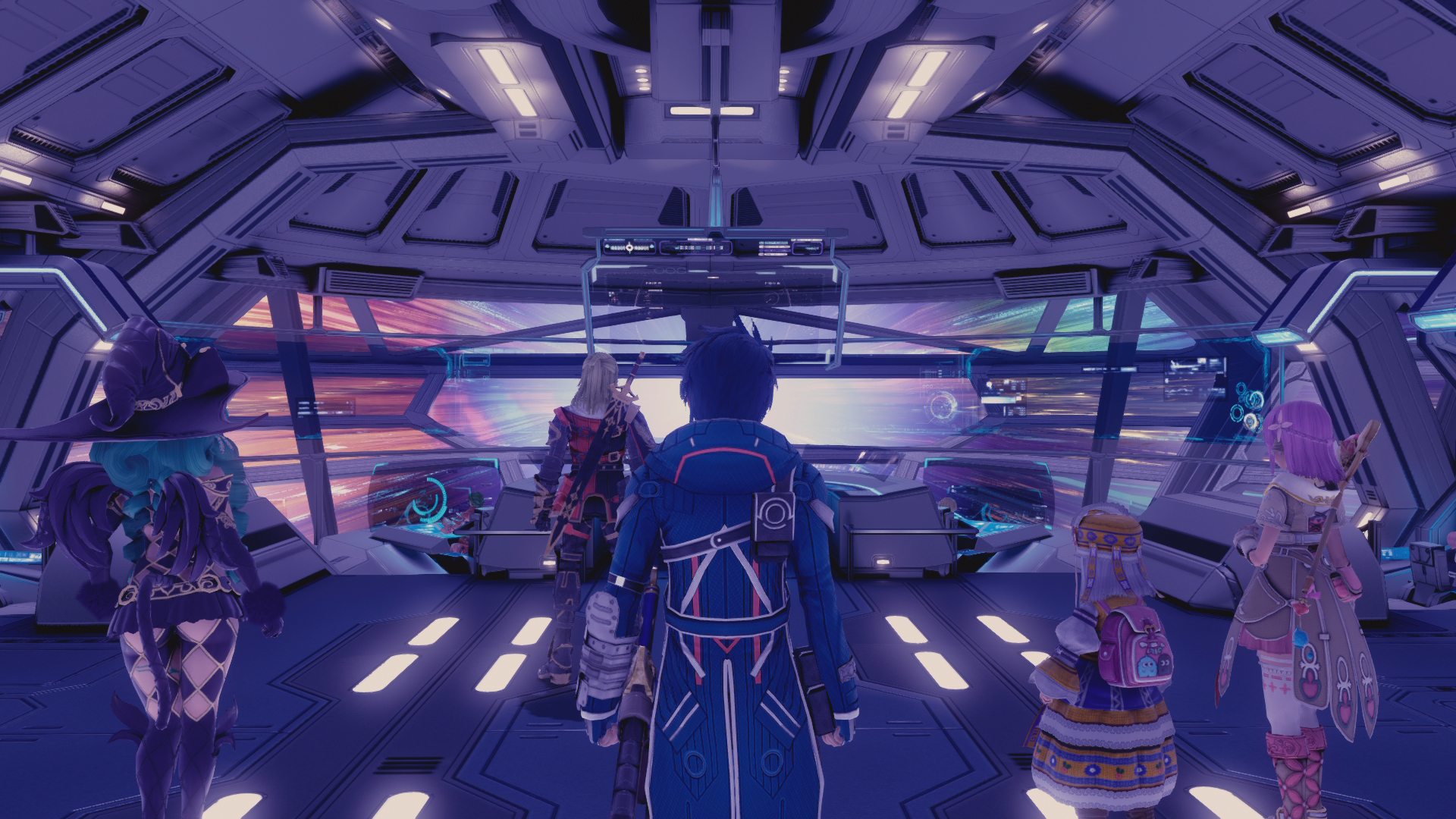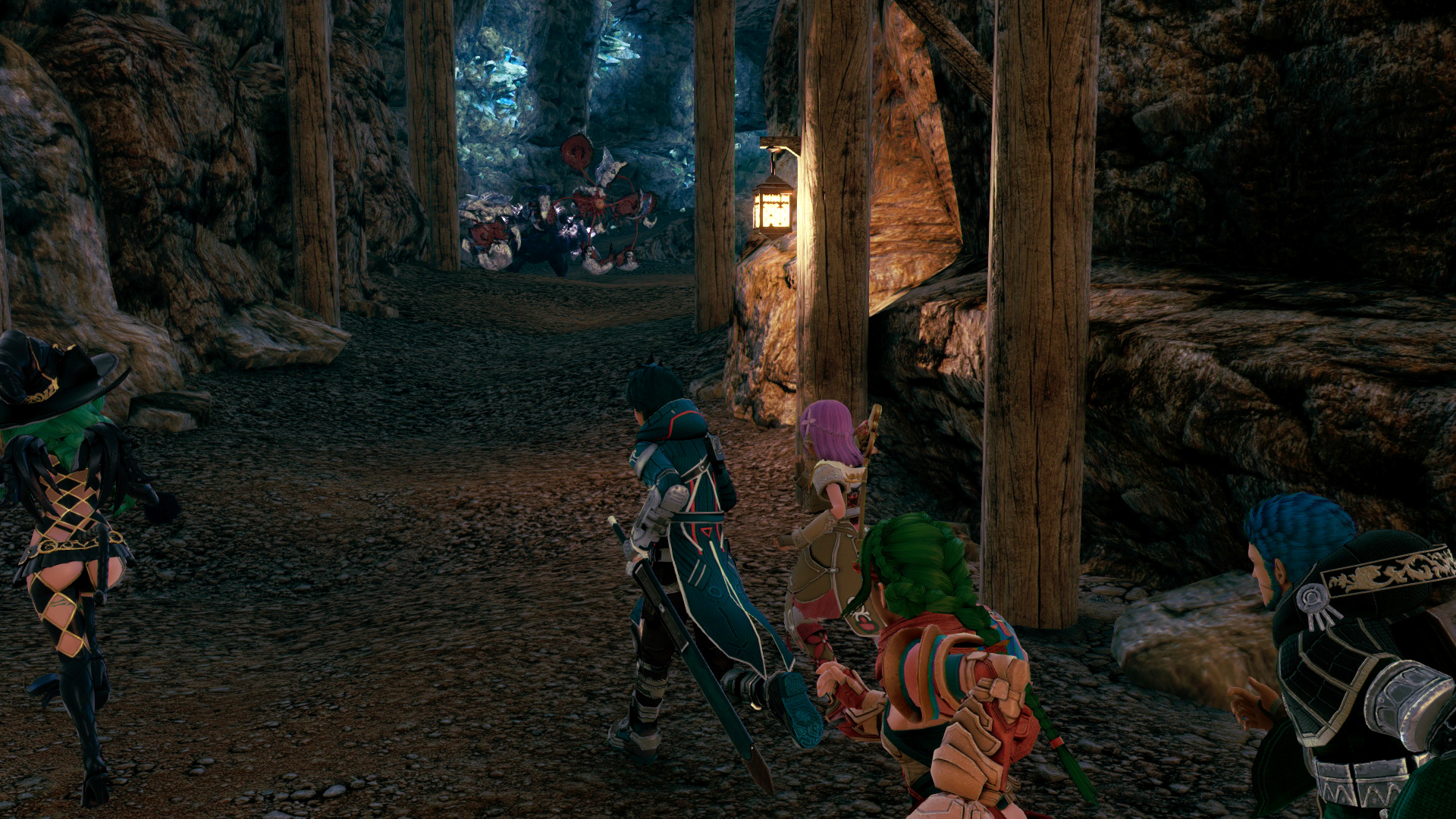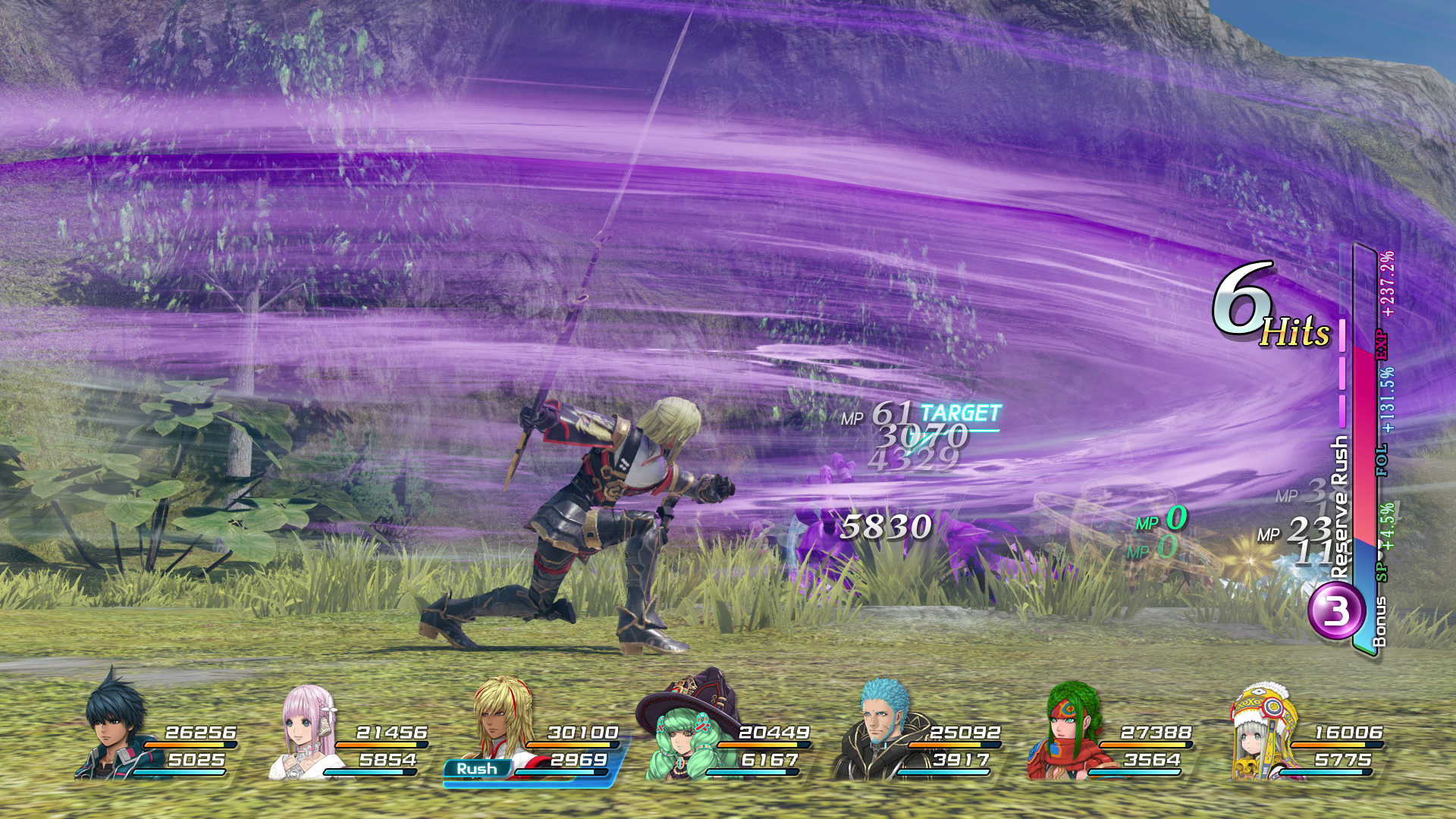GamesRadar+ Verdict
Star Ocean: Integrity and Faithlessness wants to be a grand sci-fi JRPG, but its mediocre production values undercut it at almost every opportunity.
Pros
- +
Likeable characters
- +
Frenetic arcadey combat
Cons
- -
Cut-rate production values
- -
AI is dumber than rocks
Why you can trust GamesRadar+
Playing Star Ocean: Integrity and Faithlessness is like staring out into the infinite reaches of space and realizing it's all made out of cardboard, like some creator discovered they ran out of money and supplies while building the universe and decided to cut a few corners to get the job done. That's not to say the latest Star Ocean is bad, but its ambitions push up against its own limitations, and the result is a wholly average JPRG that feels like it could have been so much better had it received a little more love and attention.
While Integrity and Faithlessness is the fifth entry in the Star Ocean series, it's a largely stand-alone tale, and no prior knowledge is needed (though series fans will likely recognize a few cameos and references throughout). You play as Fidel Camuze, a young boy living an uneventful life in a sleepy village on a backwater planet. A series of attacks on his hometown whisks him and his friend, Miki Sauvestre, away on a grand adventure that eventually leads you smack into the path of a young girl with mysterious powers and the evil space empire out to reclaim her at all costs. It's a fairly predictable plot, though it largely gets by on its likeable cast of characters, and Star Ocean gives those characters a lot of room to converse and develop a real bond with one another.

The biggest problem with the story (and the game as a whole) is that every time you think it's going to do something really interesting, the illusion comes crashing down like a house of cards. Like with many Star Ocean games, it doesn't take long for the Pangalactic Federation to get involved - think like Star Trek but with magic powers the series refers to by the delightfully silly term 'symbology' - and eventually, you get access to your own spaceship. "Oh boy," you'll think to yourself, "I can't wait to see where we go" - until you realize that it doesn't do much other act as a glorified teleportation device to get around the one planet you start on. And what should have been some of Star Ocean's most action-packed sequences are nothing more than a few blinking lights on some computer screens and a couple lines of dialog, somehow turning nail-biting space battles into a complete snore.
It's an example of how Star Ocean spends too much time telling and not showing, and it feels incredibly low-rent as a result. Cutscenes are rare, instead opting for conversations to play out via the standard over-the-shoulder camera, oftentimes while you stand dozens of feet away from important story beats. It makes dialog, and by extension, the game’s narrative, feel very passive - like people are talking at you, not to you. Even the simple inclusion of some shot/reverse shot camerawork during dialog would have gone a long way to remedy this.

You'll also spend a pretty significant amount of its 20-hour-long run time hoofing it back and forth through the same half-dozen bland, default environments (grassy plains, a desert, icy mountains, etc.) to move the story forward or complete one of its numerous fetch or kill side quests - many of which are required to unlock cooking, smithing, and other seemingly important but largely unnecessary abilities. And the dungeons themselves are pretty boring, too; straight-forward gauntlets of enemies with a few dead-ends and switchbacks here and there, which trip you up at first but ultimately become pointless the moment you unlock the ability to spot where the treasure chests are on your mini-map. The graphics aren't terribly pretty, either, as many of the environments and character models look like they were ripped from a late PS2-era game and ported over to the PS4. None of these issues are terrible on their own, but when you start to add them all up, the facade begins to crack, and the whole thing ends up feeling cheap and slapped together.
Combat is a bright spot at least - well, most of the time, anyway. Star Ocean's combat has always been a frenetic mess of spells and sword slashes, and Integrity and Faithlessness jacks the action up by allowing you to take all seven party members with you into battle. The default setting allows you to control any one of your party members while the rest go about their business based on the roles you've equipped to them, which, for example, let you determine whether your mages stick to healing or raining hell on your enemies (you can choose to micromanage your entire party by setting them to manual control but… don't do that). It's absolutely ridiculous, as big fire and ice spells and room-clearing blasts all converge at once to form a high-energy cacophony of JRPG battling that actually feels like the chaotic Dragon Ball Z-inspired clash simulated by more rigid, turn-based systems.

Even at its most hectic, there's still some strategy involved, as you watch for enemy openings for quick strikes, use strong attacks to break enemy shields, or block and counter the enemy's advances. While battles tend to get more than a bit out of hand, worrying about this higher-level strategy keeps things from devolving into a completely mindless button masher. By exploiting this system, you build up a Reserve Rush gauge, which you can either hold on to for bonus rewards, or use it to turn the tide of battle with a devastating attack or a quick burst of healing, depending on which party member you choose to activate it.
The party AI is a total mess, though, and while you can use the role system to tweak things to your liking, it still doesn't change the fact that your team has really poor spatial awareness. For your run-of-the-mill fights, this isn't a huge deal, but during crucial encounters, your team can be a real pain in the neck. One battle may require you to protect one of your party members from attack while they hack open a door - but your team won't care, simply attacking whomever they want with reckless abandon (I died several times on a fight before I just said screw it and activated my Reserve Rush). Other times, an enemy will have very obvious tells that they're charging up for a powerful close-range area-of-effect spell - but it won't matter, because all of your fighters will just barrel toward him, regardless of the consequences. A simple command system telling your team to join the fray or back off would have been immensely helpful, as their equipped roles only do so much to keep them from running astray, especially during boss battles.
Ultimately, Star Ocean: Integrity and Faithlessness just feels like it's going through the motions. It's a decent enough time, it's got a solid amount of content, and it'll definitely scratch an itch if you're jonesing for a JRPG to play on your PS4. Even so, it's hard to shake the feeling that a grand space adventure should be more grand than this; instead, it just feels like routine.
This game was reviewed on PS4.
More info
| Genre | Role Playing |



